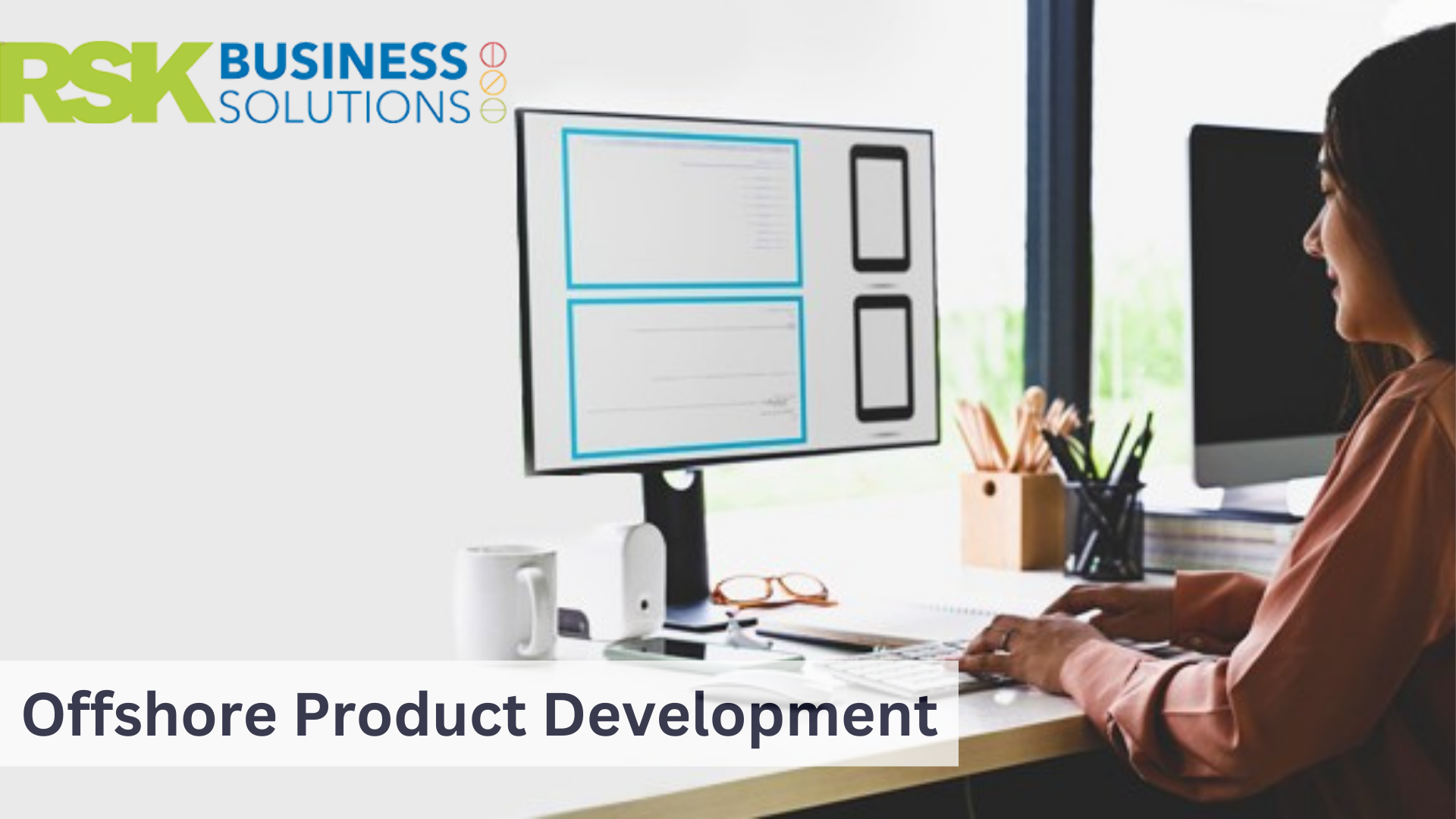
Related Articles

Pen Testing
RSK BSL Tech Team
April 14, 2025
|
|

Pen Testing
RSK BSL Tech Team
April 9, 2025
|
|

Pen Testing
RSK BSL Tech Team
April 7, 2025
|
|

Pen Testing
RSK BSL Tech Team
April 3, 2025
|
|

Pen Testing
RSK BSL Tech Team
March 31, 2025
|
|

Pen Testing
Praveen Joshi
March 27, 2025
|
|

Pen Testing
RSK BSL Tech Team
March 25, 2025
|
|

Pen Testing
RSK BSL Tech Team
March 20, 2025
|
|

Pen Testing
RSK BSL Tech Team
March 18, 2025
|
|

Pen Testing
RSK BSL Tech Team
March 10, 2025
|
|

Software Development
RSK BSL Tech Team
February 24, 2025
|
|

Pen Testing
RSK BSL Tech Team
February 19, 2025
|
|

Software Development
Praveen Joshi
February 11, 2025
|
|

insight
Praveen Joshi
January 31, 2025
|
|

AI Tech Solutions
Praveen Joshi
January 27, 2025
|
|

Software Development
Praveen Joshi
January 20, 2025
|
What is Offshore Product Development?
In today’s globalised economy, businesses are constantly seeking innovative ways to stay competitive and efficient. One such strategy that has gained significant traction is offshore product development (OPD). This approach involves outsourcing the development of products or services to third-party organisations located in different countries. But what exactly is offshore product development, and why is it so important? Let us take a closer look at this topic.
Offshore Product Development (OPD) is a business strategy where a company outsources the development of its products or services to a third-party organisation situated in a different country. This offshore team handles various aspects of the product lifecycle, including conceptualisation, design, development, testing, and maintenance. The term “offshore” indicates that the development team is located in a different geographical region, often in a country with lower labour costs or specialised expertise.
Key Components of Offshore Product Development
- Product Design and Prototyping: This involves creating initial designs and prototypes of the product. The offshore team collaborates closely with the company’s in-house team to ensure the designs meet the desired specifications and standards.
- Software Development: The core development phase where the actual product is built. This includes coding, integrating various components, and ensuring the product functions as intended.
- Quality Assurance and Testing: Rigorous testing is conducted to identify and fix any bugs or issues. This ensures the product is reliable and performs well under different conditions.
- Product Maintenance and Support: After the product is launched, the offshore team continues to provide support and maintenance, ensuring the product remains up-to-date and functional.
Why is Offshore Product Development Important?
1. Cost-Effectiveness
One of the most compelling reasons for businesses to adopt offshore product development is cost savings. By outsourcing to countries with lower wage structures, companies can significantly reduce labour costs. According to Deloitte, businesses can save up to 70% on labour costs by outsourcing software development and other IT-related tasks to offshore locations. This cost arbitrage allows companies to allocate resources to other critical areas such as marketing, research, and development.
2. Access to Skilled Talent
Offshore product development provides access to a vast pool of skilled professionals with diverse expertise. These professionals are often well-educated, tech-savvy, and adaptable, making them valuable assets to augment the in-house team’s capabilities. Offshore development companies typically operate in regions with a rich pool of highly skilled professionals, ensuring that businesses can find the right talent for their specific needs.
3. Scalability
Offshore product development offers the flexibility to scale operations up or down based on project requirements. This scalability is particularly beneficial for businesses experiencing fluctuating demands or those looking to expand their product offerings without the need for significant investments in infrastructure and personnel.
4. Time Zone Advantage
Working with offshore teams in different time zones can lead to round-the-clock productivity. While the in-house team is off-duty, the offshore team can continue working on the project, ensuring faster turnaround times and quicker time-to-market. This continuous development cycle can be a significant competitive advantage in today’s fast-paced business environment.
5. Focus on Core Competencies
By outsourcing product development tasks, businesses can focus on their core competencies and strategic initiatives. This allows the in-house team to concentrate on areas where they can add the most value, such as innovation, customer engagement, and business growth.
6. Mitigation of Risks
Offshore product development can help mitigate risks associated with market fluctuations, economic downturns, and other uncertainties. By diversifying operations across different geographical locations, businesses can reduce their dependency on a single market and spread their risks more effectively.
7. Innovation and Fresh Perspectives
Collaborating with offshore teams can bring fresh perspectives and innovative ideas to the table. These teams often have experience working with a diverse range of clients and industries, enabling them to offer unique insights and creative solutions. This cross-pollination of ideas can lead to the development of cutting-edge products and services.
How to Choose an Offshore Partner?
- Define Your Goals: Clearly outline what you aim to achieve with offshore development, such as cost reduction, access to specialised skills, or faster time-to-market.
- Research Potential Partners: Look for companies with a strong track record, positive client testimonials, and relevant industry expertise.
- Evaluate Technical Expertise: Assess the partner’s proficiency in relevant technologies, programming languages, and development methodologies.
- Communication and Cultural Fit: Ensure the partner have strong communication practices and cultural compatibility with your business.
- Data Security: Verify that the partner has robust security measures to protect your sensitive information and complies with industry standards.
- Cost-Effectiveness: Evaluate the overall cost-effectiveness, including pricing models and any hidden costs.
Challenges of Offshore Product Development
1. Communication Barriers
Effective communication is critical to any project’s success. Working with offshore teams can sometimes lead to communication barriers due to differences in language, culture, and time zones. To overcome these challenges, businesses should establish clear communication channels, use collaboration tools, and foster a culture of open and transparent communication.
2. Quality Control
When dealing with offshore teams, it might be difficult to keep quality standards constant. It is essential to establish robust quality assurance processes and conduct regular audits to ensure that the offshore team adheres to the required standards. Clear documentation, well-defined processes, and regular feedback can help maintain high-quality output.
3. Intellectual Property Concerns
Protecting intellectual property (IP) is a critical concern when outsourcing product development to offshore teams. Businesses should ensure that they have strong legal agreements in place to safeguard their IP rights. Conducting thorough due diligence and working with reputable offshore partners can help mitigate these risks.
4. Cultural Differences
Cultural differences can impact collaboration and teamwork. Understanding and respecting cultural nuances is essential for building strong working relationships with offshore teams. Providing cultural sensitivity training and promoting a culture of inclusivity can help bridge cultural gaps and foster a positive working environment.
Best Practices for Successful Offshore Product Development
1. Choose the Right Partner
Selecting the right offshore partner is crucial for the success of the project. Businesses should conduct thorough research, evaluate potential partners based on their expertise, track record, and client testimonials, and choose a partner that aligns with their goals and values.
2. Establish Clear Objectives and Expectations
Clearly defining project objectives, deliverables, timelines, and expectations is essential for ensuring alignment between the in-house and offshore teams. Detailed project documentation and regular progress reviews can help keep the project on track.
3. Foster Collaboration and Communication
Promoting a culture of collaboration and open communication is vital for the success of offshore projects. Using collaboration tools, conducting regular meetings, and encouraging feedback can help bridge the gap between the in-house and offshore teams.
4. Implement Robust Quality Assurance Processes
Establishing strong quality assurance processes and conducting regular audits can help maintain consistent quality standards. Clear documentation, well-defined processes, and regular feedback can help ensure high-quality output.
5. Protect Intellectual Property
Ensuring the protection of intellectual property is critical when working with offshore teams. Businesses should have strong legal agreements in place and conduct thorough due diligence to safeguard their IP rights.
Technological Trends in Offshore Product Development
1. AI and Machine Learning Integration
AI and machine learning are increasingly being integrated into offshore product development. Offshore teams are leveraging these technologies to automate complex tasks, provide data-driven insights, and enhance user experiences. AI-driven tools are also being used for automated testing and predictive analytics.
2. Blockchain Development
Blockchain technology is gaining traction in offshore development due to its potential to enhance security, transparency, and traceability. Offshore teams are developing decentralised solutions for various industries, including finance, supply chain, and healthcare.
3. Cybersecurity Expertise
With growing concerns about data security and privacy, there is a rising demand for offshore partners with strong cybersecurity expertise. These teams help ensure that products are secure and protect user data from threats.
4. IoT Solutions
The Internet of Things (IoT) is rapidly expanding, and offshore development centres are playing a crucial role in creating IoT-enabled products and services. Offshore teams are developing connected devices and applications that offer innovative solutions across various sectors.
5. Cloud-Native Development
Cloud-native development is becoming a standard practice in offshore product development. Offshore teams are utilising cloud platforms to build scalable, flexible, and cost-effective solutions. This approach allows for easy scaling of resources and reduces infrastructure costs.
Future of Offshore Product Development
1. Increased Adoption of Agile and DevOps
Agile and DevOps methodologies will continue to gain traction in offshore development. These approaches promote collaboration, flexibility, and continuous improvement, making them ideal for distributed teams. Companies adopting these methodologies can expect faster time-to-market and improved product quality.
2. Expansion of AI and Machine Learning
The integration of AI and machine learning will become more prevalent, driving innovation and efficiency in offshore development. AI-powered tools will automate more aspects of the development process, from coding to testing, and provide valuable insights through predictive analytics.
3. Growth of Blockchain and Cybersecurity Solutions
As blockchain technology matures, its adoption in offshore development will increase, particularly for applications requiring high security and transparency. Additionally, the focus on cybersecurity will intensify, with offshore teams developing robust solutions to protect against evolving threats.
4. Emphasis on Specialised Skills and Innovation
Companies will increasingly seek offshore partners with specialised skills and innovative capabilities. This trend will drive the demand for offshore teams proficient in emerging technologies such as AI, blockchain, IoT, and cloud computing.
5. Geographical Diversification
To mitigate risks and access diverse talent pools, companies will diversify their offshore operations across multiple countries. This approach will help businesses tap into specialised expertise and protect against regional disruptions.
Conclusion
Offshore product development offers significant benefits, including cost savings, access to global talent, and scalability. However, selecting the right offshore partner is essential for success. By defining your goals, researching potential partners, evaluating technical expertise, ensuring good communication, checking data security, and assessing cost-effectiveness, you can find a partner that aligns with your business needs.
As the global economy evolves, offshore software development will continue to be a valuable strategy for businesses seeking growth and innovation. Companies with the right partner can seize new opportunities and achieve their strategic goals.
RSK BSL Tech Team

 Share
Share Post
Post Tweet
Tweet Copy
Copy


